


Legian has this effortlessly laid-back vibe that instantly makes you want to slow down and soak it all in. Imagine waking up to the gentle roar of waves crashing just a short stroll away,the salty breeze mingling with the sweet scent of frangipani flowers drifting through the air. The streets buzz with a lively mix of locals and travelers,where colorful market stalls spill over with tropical fruits,handmade crafts,and the tempting aroma of sizzling street food. It’s a place where the sun seems to linger longer,painting the sky in shades of pink and gold as surfers catch the last waves of the day. What really sets Legian apart is its balance between vibrant energy and relaxed charm. By day,you can wander along the wide,sandy beach,feeling the warm sand between your toes and watching kites dance overhead. The town hums with the sounds of laughter,reggae beats,and the clinking of glasses from cozy beachfront bars. When hunger strikes,you’re spoiled for choice—from spicy satay skewers grilled right in front of you to fresh seafood that tastes like it was just pulled from the ocean. But beyond the sights and flavors,Legian feels like a community. Friendly smiles greet you everywhere,and there’s a genuine warmth in the way locals share their culture,whether through traditional dance performances or casual chats over kopi. It’s a place that invites you to slow down,connect,and leave with a heart full of stories and a craving to come back.
The information on this page is currently being reviewed by Tripkliq and should be used as a guide only
Eng word: Hello
Eng pronunciation: HAH-loh
Local language: Halo
Eng word: Goodbye
Eng pronunciation: suh-LAH-maht TING-gahl
Local language: Selamat tinggal
Eng word: Thank you
Eng pronunciation: teh-REE-mah KAH-see
Local language: Terima kasih
Eng word: How much
Eng pronunciation: buh-RAH-pah
Local language: Berapa
Eng word: Toilet
Eng pronunciation: TOY-let
Local language: Toilet
Eng word: Help me
Eng pronunciation: TOH-long SAH-yah
Local language: Tolong saya
Eng word: Yes
Eng pronunciation: YAH
Local language: Ya
Eng word: No
Eng pronunciation: TEE-dahk
Local language: Tidak
Eng word: Excuse me
Eng pronunciation: puhr-MEE-see
Local language: Permisi
Legian, a vibrant area in Bali, Indonesia, was originally a small fishing village. Over the years, it has transformed into a bustling tourist destination known for its beautiful beaches and lively atmosphere.
The development of tourism in Legian began in the 1970s. The area saw a significant influx of visitors, leading to the establishment of numerous hotels, restaurants, and shops catering to international tourists.
Legian Beach is one of the most famous beaches in Bali. Known for its golden sands and excellent surfing conditions, it has been a major draw for tourists since the early days of Bali's tourism boom.
Legian hosts several cultural festivals throughout the year, showcasing traditional Balinese music, dance, and art. These events provide tourists with a glimpse into the rich cultural heritage of the region.
Pura Dalem Kahyangan is a significant temple in Legian, dedicated to the Hindu god Shiva. It is a place of worship and a cultural landmark, attracting both locals and tourists interested in Balinese spirituality.
Legian is home to several art and craft markets where visitors can purchase traditional Balinese handicrafts, textiles, and souvenirs. These markets reflect the area's rich artistic traditions.
Legian is renowned for its vibrant nightlife, with numerous bars, clubs, and live music venues. The nightlife scene has been a significant part of Legian's appeal to tourists since the 1980s.
Legian has a strong surfing culture, with its beaches offering excellent waves for both beginners and experienced surfers. Surf schools and rental shops are plentiful, making it a popular spot for surf enthusiasts.
The culinary scene in Legian is diverse and vibrant, featuring a mix of traditional Balinese cuisine and international dishes. The area is known for its beachside cafes and fine dining restaurants.
In Legian, the most common Power Adaptor is Type C, Type F.


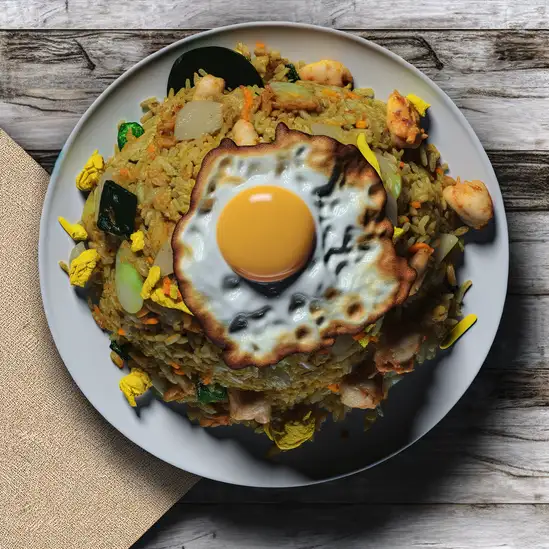
A flavorful fried rice dish often served with vegetables, chicken, shrimp, and topped with a fried egg.

A Balinese specialty made from minced meat mixed with grated coconut and spices, wrapped around bamboo sticks and grilled.
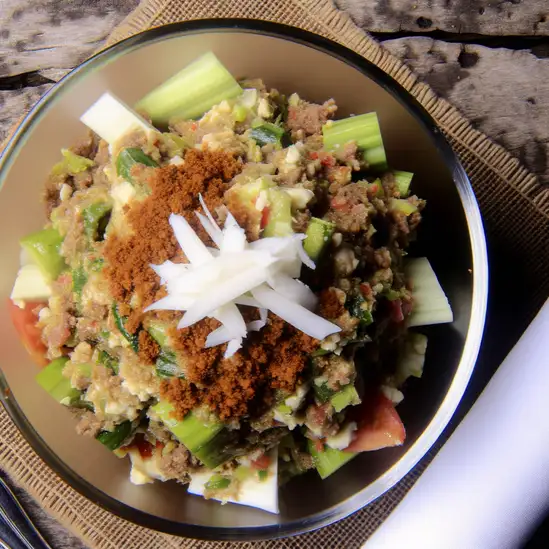
A traditional mix made from vegetables, coconut, and minced meat, often flavored with herbs and spices.

A traditional salad made with boiled vegetables, tofu, and hard-boiled eggs, served with a rich peanut sauce.
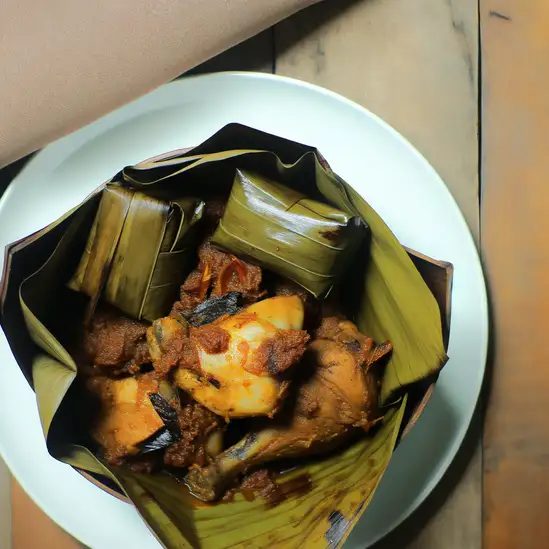
Similar to Bebek Betutu, this dish features chicken marinated in a rich spice mixture and cooked until tender.
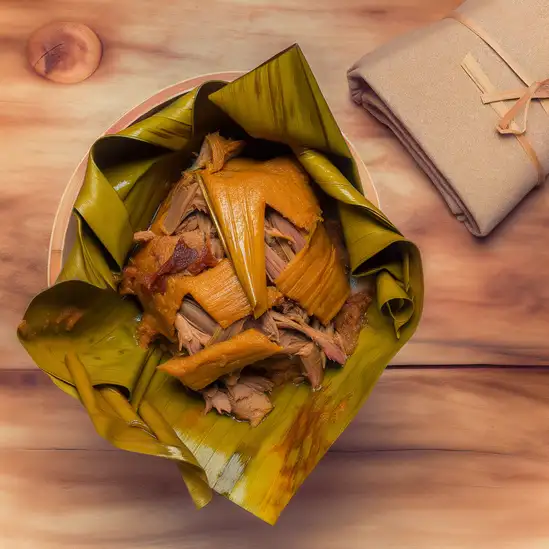
Slow-cooked duck marinated with a blend of spices and wrapped in banana leaves, resulting in tender and flavorful meat.
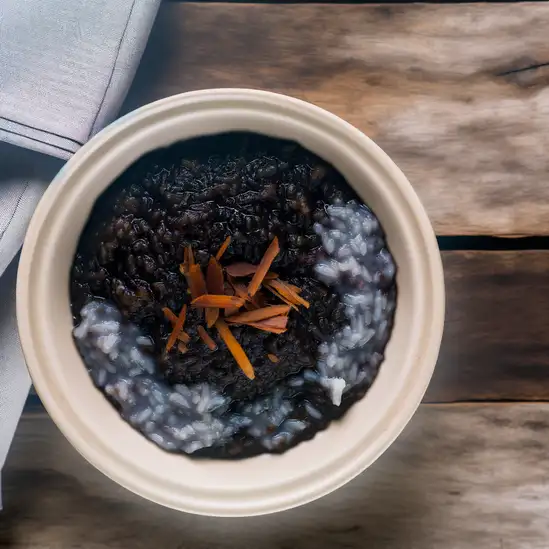
A sweet black rice pudding made with coconut milk, often enjoyed as a dessert.

A spicy fruit salad made with a mix of fresh fruits, typically served with a tangy and spicy sauce.
If you ever find yourself craving a place where time slows down just enough to savor every moment,Ubud is that kind of sanctuary. Nestled in the lush heart of Bali,this town hums with a gentle rhythm—part spiritual retreat,part creative hub. Walking through its streets,you’ll catch the scent of frangipani and incense mingling with the earthy aroma of wet rice fields nearby. The air feels alive,filled with the soft chatter of locals,the distant clink of gamelan music,and the occasional call of a rooster greeting the dawn.
Ubud’s charm lies in its seamless blend of tradition and artistry. Temples with intricate stone carvings peek through vibrant greenery,while open-air markets burst with colorful textiles,hand-carved masks,and fresh tropical fruits. You can sip on a rich,earthy cup of Balinese coffee at a cozy café,watching artisans craft delicate silver jewelry or dancers rehearsing for an evening performance. It’s a place where culture isn’t just observed—it’s lived and breathed.
What really stays with you is the warmth of the people and the sense of connection to nature and spirit. Whether you’re wandering through the terraced rice paddies,joining a yoga class overlooking the jungle,or simply sitting by the Campuhan Ridge Trail at sunset,Ubud invites you to slow down,breathe deeply,and soak in a world that feels both ancient and vibrantly alive.
If you’re dreaming of a place where laid-back beach vibes meet vibrant energy,Seminyak is that sweet spot. Imagine waking up to the gentle hum of waves brushing against golden sands,the salty breeze mingling with the scent of frangipani and sizzling street food. It’s a place where mornings start slow with a fresh coconut in hand,and the day unfolds with a mix of chic boutiques,bustling markets,and cozy cafes spilling onto sun-dappled streets.
What really makes Seminyak special is its effortless blend of tradition and trend. You’ll find ancient Balinese temples tucked between sleek beach clubs,and local artisans selling handwoven textiles right next to stylish galleries. The town pulses with a creative spirit—whether it’s the vibrant street art,the soulful sounds of gamelan music drifting from a nearby ceremony,or the tantalizing aroma of spices from warungs cooking up authentic dishes.
As the sun dips low,Seminyak transforms. The sky blazes with fiery oranges and pinks,and the beach comes alive with laughter,clinking glasses,and the soft strum of guitars. Dinner might be fresh seafood grilled over coconut husks or a plate of spicy satay enjoyed under twinkling fairy lights. It’s a place that invites you to slow down,soak in the moment,and savor the rich tapestry of sights,sounds,and flavors that make this corner of Bali unforgettable.
If you find yourself wandering through Kota Denpasar,you’ll immediately notice its lively heartbeat—a city that hums with everyday life yet carries a deep cultural rhythm beneath the surface. It’s not the polished tourist hub like southern Bali,but that’s exactly what makes it so captivating. The streets buzz with scooters weaving through markets where the scent of fresh spices mingles with the earthy aroma of tropical fruits. Vendors call out in warm,melodic tones,inviting you to taste something new or simply share a smile.
Denpasar feels like the authentic soul of Bali,where tradition and modern life dance side by side. You’ll see women in vibrant kebayas carrying offerings to temples,while nearby,young artists sketch murals that splash color onto old walls. The city’s pulse is both chaotic and comforting,with the clatter of street food stalls serving up fragrant nasi campur and the gentle chime of temple bells weaving through the air.
What’s truly special is how Denpasar invites you to slow down and soak in its layers—whether it’s the warmth of a local’s greeting,the taste of freshly brewed Balinese coffee,or the sight of intricate carvings on ancient temples tucked between bustling streets. It’s a place where you don’t just visit; you become part of the daily story,feeling the city’s spirit in every step you take.
Imagine stepping onto Gili Trawangan and instantly feeling the world slow down. This little island off the coast of Lombok pulses with a laid-back energy that’s both refreshing and contagious. No cars or motorbikes here—just the gentle clatter of horse-drawn carts and the rhythmic splash of waves against white sandy beaches. The air carries a salty tang mixed with the sweet aroma of tropical flowers and sizzling satay from beachside warungs. As the sun dips low,the sky bursts into shades of pink and orange,casting a warm glow over the turquoise waters.
What makes Gili Trawangan truly special is its blend of vibrant island life and serene natural beauty. Days drift by snorkeling alongside graceful sea turtles or cycling through palm-fringed paths,while evenings come alive with the laughter of travelers sharing fresh seafood dinners under starlit skies. The island’s community feels like a patchwork of friendly faces from all over the world,united by a love for simple pleasures and adventure.
There’s a rhythm here that invites you to slow down and savor every moment—the crunch of coral underfoot,the hum of reggae tunes from a beach bar,the cool splash of the ocean after a day in the sun. Gili Trawangan isn’t just a place to visit; it’s a place to feel alive,to connect,and to create stories you’ll want to tell again and again.
Imagine stepping into a place where the ocean breeze carries the scent of salt and frangipani,and the rhythm of traditional gamelan music hums softly in the background. That’s Lombok for you—a vibrant island that feels both alive and laid-back at the same time. Unlike its flashier neighbor Bali,Lombok has this raw,untouched charm that invites you to slow down and really soak in the moment. The beaches here aren’t just pretty; they’re vast stretches of powdery white sand meeting turquoise waves that seem to whisper stories of ancient fishermen and island life.
Walking through the local markets,you’ll hear the lively chatter of vendors selling fresh spices,tropical fruits,and handwoven textiles. The air is thick with the aroma of grilled satay and sweet coconut,tempting you to try every bite. The Sasak people,with their warm smiles and rich traditions,add a deep cultural layer to the island’s character. You might catch a glimpse of their intricate weaving or hear tales of their unique ceremonies,which feel like a bridge between past and present.
What really stays with you about Lombok is its balance—between adventure and tranquility,nature and culture. Whether you’re hiking up Mount Rinjani’s misty slopes,diving into vibrant coral reefs,or simply sipping a fresh coconut by a quiet beach,there’s a genuine sense of connection here. It’s a place that doesn’t just fill your camera roll but leaves a quiet imprint on your heart.
If you ever find yourself wandering through Yogyakarta,you’ll immediately notice a rhythm that feels both lively and laid-back,like the city is humming a gentle,inviting tune. It’s a place where ancient traditions and youthful energy collide in the most beautiful way. As you stroll down Malioboro Street,the air is thick with the scent of sizzling satay and sweet jasmine from roadside stalls,while the chatter of locals bargaining and the distant beat of gamelan music create a vibrant soundtrack. The city’s heart beats in its art and culture—every corner seems to hold a story,from the intricate batik workshops to the majestic temples of Borobudur and Prambanan just a short ride away.
Yogyakarta’s charm lies in its warmth and authenticity. The people here are incredibly welcoming,often eager to share their crafts,stories,or a cup of strong Javanese coffee. You can feel the city’s deep respect for its heritage,yet it’s also a hub for creative souls,with street art splashed across walls and indie cafes buzzing with young artists and thinkers. The sunsets here are something else—casting a golden glow over the terracotta rooftops and ancient palaces,inviting you to pause and soak it all in.
Whether you’re wandering through the Sultan’s Palace,tasting gudeg (a sweet jackfruit stew) at a local warung,or simply watching the world go by from a cozy café,Yogyakarta wraps you in a sense of belonging. It’s a city that doesn’t just ask you to visit but to stay a little longer,to explore deeper,and to fall in love with its soul.
Some money changers offer attractive exchange rates but use sleight-of-hand tricks to shortchange tourists or charge hidden fees.
Scammers posing as police officers may stop tourists and demand bribes for alleged traffic violations or other fabricated offenses.
Unscrupulous agents sell fake or subpar tour packages, promising activities or destinations that are not delivered as advertised.
Tourists may be sold counterfeit or low-quality items, such as fake branded clothing, jewelry, or electronics, at inflated prices.
Tourists may be accused of damaging rented motorbikes or be charged for pre-existing damage. Some rental companies may also keep passports as collateral and demand extra fees.
Tourists may be overcharged for drinks, presented with inflated bills, or pressured into paying for services they didn’t request.
Thieves target distracted tourists in crowded areas, stealing wallets, phones, or bags, often while riding motorbikes.
Street vendors may charge tourists significantly higher prices for souvenirs, food, or drinks compared to locals.
Drivers may refuse to use the meter and quote inflated prices, especially for short distances or popular tourist spots.
Tourists are lured into attending high-pressure sales presentations for timeshares or fake investment opportunities.
Indonesia has very strict drug laws, and this includes Legian. The possession, use, or trafficking of illegal drugs can result in severe penalties, including long prison sentences and even the death penalty. Tourists should avoid any involvement with illegal drugs and be aware that even small quantities can lead to significant legal consequences.
In Legian, Indonesia, smoking is generally allowed in public areas, but there are restrictions in place. Smoking is prohibited in certain public spaces such as government buildings, healthcare facilities, educational institutions, and public transportation. Many restaurants and bars may have designated smoking areas. Tourists should look for 'No Smoking' signs and respect local regulations to avoid fines.
Vaping is subject to similar regulations as smoking in Legian. It is generally allowed in public areas but prohibited in specific locations like government buildings, healthcare facilities, and public transportation. Some establishments may have designated areas for vaping. Tourists should be mindful of 'No Vaping' signs and adhere to local rules.
What are other people saying about Legian?
Recent Social posts about Legian
There is nothing to show you for now.